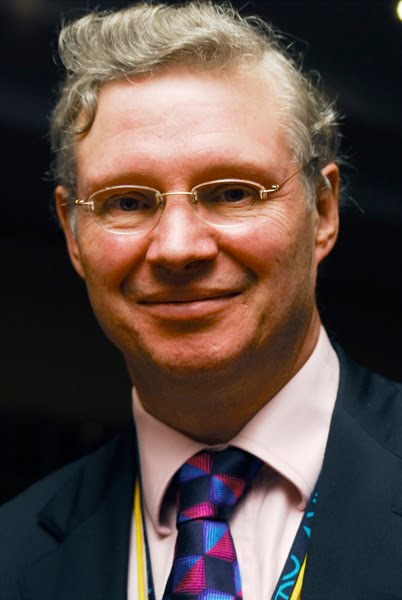Many that work in the UK will remember Lord Nigel Crisp as the Chief Executive of the NHS between 2000 and 2006. Since 2006 he has been a passionate and tireless advocate for health workforce issues. He has been acknowledged as “A Champion advocate for Global Health Workforce Alliance” by the Alliance Board.
In 2007, in response to an invitation from the Prime Minister and the Secretaries of State for Health and International Development to look at how UK experience and expertise in health could be used to best effect to help improve health in developing countries, he published what is now known as the “Crisp Report“. This report among other things recommended that NHS should assist in and coordinate the release of staff in response to humanitarian emergencies. (pertinent today as ever).
So recently we received an invitation to the lunch of his new book titled “Turning the world upside down” Ike and I attempted to attend but unfortunately I was declined entry for being inappropriately dressed for the high profile London venue “The Reform Club“.
Ike made it in and contributes this report…
Turning the world upside down launch
Emerging from the underground into the freezing hustle and bustle of Piccadilly Circus, I make my way to the Reform Club at Pall Mall. I am there at the invitation of Lord Crisp, former Chief Executive of the NHS and current global health advocate. He has recently written a book, Turning the World Upside Down, published by the Royal Society of Medicine Press. I am not quite sure how or why I have been invited but imagine that it is either through having met Lord Crisp at a BAPIO conference some years ago and exchanging some emails about international health or through his eullient parliamentary researcher, Susannah edjang who has been greatly supportive of many of our initiatives.
Arriving at the imposing building with pillars in front of it, there is no sign indicating that this is the Reform Club so I resort to checking the building number. Having confirmed it, I join the stream of guests- I am directed by a uniformed gentleman to leave my bag on a shelf and then make my way upstairs to a cloakroom where I can leave my coat. “By the way” he asks, “are you wearing a tie?”. I am not, and so he invites me to pick one from a box overflowing with ties sitting on a table behind reception. I select the least garish, and move into a corner to knot it, ruing the fact that my top shirt buttons cannot come together
Having achieved some semblance of presentability, I make my way up dimly lit stairs to a cloakroom where I leave my coat and then to the open library like room where the drinks reception for the launch is holding
I meet Susannah and after exchanging greetings begin chatting to a number of other guests including public health doctors, presidents of the medical Royal Colleges, people who work in health, international development, the civil service and some politicians. I also meet a gentleman who works in scenario planning, who is grateful that he does not need to explain what that is to me.
I receive a telephone call from my friend and colleague Chikwe who is livid that he has been refused entry to the event as he is apparently innappropriately dressed. Since there wasn’t any dress code on the invitation, it is certainly annoying. I later learn that another gentleman actually had to go and buy a shirt and tie in a nearby shop before returning. We later learn that to have the priviledge of entering this venue, gentlemen are required to wear closed collar, jacket and tie. Ladies are required to dress with similar formality….well…if only we knew.
There are 3 brief speeches, one from the author Lord Crisp who thanks all who have supported him especially the firm which sponsored the reception, his family and colleagues. He explains that the book started out from his being asked by the Prime Minister to look at how the NHS could help improve global health, and his observing that learning was not a one way street; that there were many lessons that health in the West could learn from developing countries, citing the examples of the numerous Caesarean sections carried out by nurses in some African countries; Geoff Mulgan Director of the Young Foundation reviewed the book, saying that it contained any useful examples and challenges for rethinking how global health challenges can be met, stressing the importance of the 2 way learning flow The final speaker was Ransford Smith, the Deputy Secretary General of the Commonwealth and a former Jamaican permanent secrtary and diplomat who highlighted that a great part of the burden of global disease sits in the Commonwealth. He highlighteed the important contributions that Lord Crisp had made to global health and the commonwealth, particularly in his role at the Global Health Workforce Alliance and recommended the book to all readers….
We look forward to reading it.
Never doubt that a small group of thoughtful committed people can change the world; indeed it is the only thing that ever has…Margaret Mead





